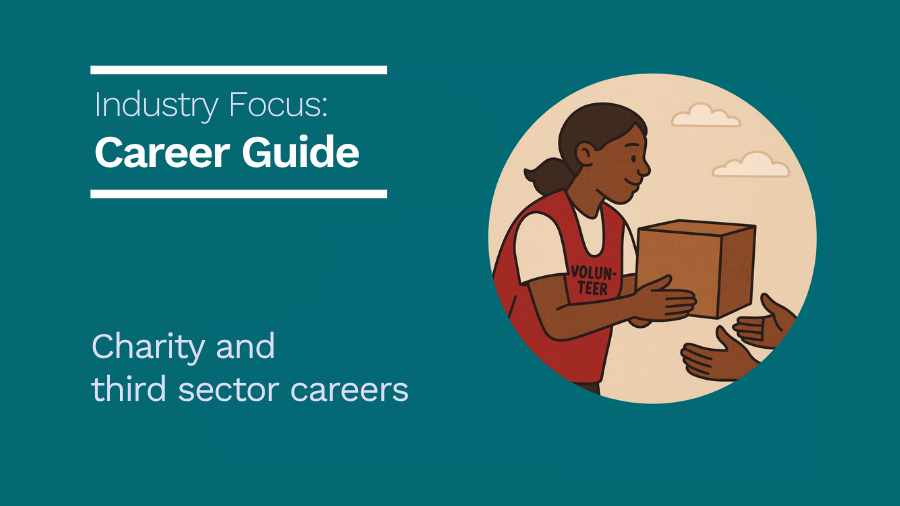For many service leavers, the desire to make a meaningful difference does not end with military life. The charity and third sector can offer former personnel a renewed sense of purpose, providing opportunities to support communities, champion causes, and use their skills for the public good. Whether through frontline service delivery, operational support, or leadership roles, this is a sector that values discipline, empathy, and real-world experience.
UK charities range from large, established national organisations to small local initiatives, covering everything from healthcare and housing to education, humanitarian support, and veteran welfare. Many rely on structured, mission-driven operations and thrive on teamwork – environments that feel familiar to those with a military background.
A sector built on transferable skills
Veterans bring a distinctive mix of practical skills and personal qualities that are well suited to the charity and third sector. Project management, logistics, planning, crisis response, and leadership are all integral to running successful charitable programmes.
Many charities operate with limited resources, so they value individuals who can think on their feet, work under pressure, and stay focused on outcomes. Those with operational or leadership experience often find themselves well placed for roles in programme coordination, emergency response, or service delivery. Veterans with medical, engineering, communications, or IT backgrounds can also find strong alignment with specialist support roles.
For those used to working within a values-led organisation, the charity sector’s emphasis on purpose, community impact, and service can provide a sense of continuity after leaving the Forces.
Frontline and operational opportunities
Charities rely on a wide range of operational staff to deliver their services. This can include working in outreach programmes, providing direct support to vulnerable groups, coordinating emergency response, or managing logistics for large-scale operations.
Roles in homelessness services, youth programmes, health and social care, and crisis response are particularly well suited to those comfortable working in high-pressure or unpredictable environments. Veterans are often sought after for their calm under pressure and ability to act decisively.
Beyond frontline delivery, many charities also need skilled operational staff to plan and coordinate services. Project managers, logistics coordinators, and operations leads play a crucial role in ensuring that resources are deployed effectively and that programmes run smoothly.
Leadership, governance, and strategy
Many service leavers find rewarding second careers in leadership roles within charities. Chief executive and director-level positions are often filled by individuals with strong organisational backgrounds. Veterans who have led teams, managed resources, and worked within structured command environments may find a natural fit here.
There are also opportunities to sit on charity boards or become trustees. This allows veterans to use their strategic experience to guide an organisation’s direction, oversee governance, and support long-term planning without necessarily working full time in the sector.
Specialist and support functions
The third sector is not just about frontline work. Charities need skilled staff in areas such as IT, HR, finance, communications, and security. Veterans with specialist backgrounds can contribute significantly in these areas, helping organisations modernise and operate efficiently.
Security and safeguarding are particularly important for charities working with vulnerable populations. Those with a background in risk assessment, intelligence, or safeguarding may be especially well suited to these roles. Similarly, veterans with logistics or transport experience may find opportunities in supply chain management for large charities operating across the UK and internationally.
Veteran-focused charities
Many veterans choose to work with organisations that support the Armed Forces community itself. Veteran-focused charities often prioritise hiring those with lived experience of service life, as they bring insight and credibility to the role.
Organisations supporting mental health, housing, welfare, and employment services often actively recruit former service personnel for both frontline and management positions. Working within this community can offer the unique satisfaction of supporting those who share similar backgrounds and experiences.
Qualifications and training
While some charity sector roles are open to candidates with relevant experience alone, others may require additional qualifications – particularly in areas like social care, project management, or governance.
The Enhanced Learning Credits (ELC) scheme can support veterans in funding relevant qualifications, including project management courses such as PRINCE2, safeguarding and social care certifications, or leadership and governance training. Those interested in trustee roles can also access free or low-cost training through sector bodies such as the Charity Commission for England and Wales or the National Council for Voluntary Organisations.
Finding opportunities
Several organisations provide career transition support into the charity and third sector. The MOD Career Transition Partnership (CTP) lists charity and not-for-profit vacancies and can help match service leavers with relevant employers. The Forces Employment Charity and SaluteMyJob also work closely with charities looking to hire veterans.
Job boards such as CharityJob and Third Sector Jobs regularly advertise vacancies ranging from entry-level support roles to senior leadership positions. Networking can also be effective, as many smaller organisations value personal recommendations and connections.
If you’re seeking a meaningful civilian career that builds on your service, the charity and third sector offer a wealth of opportunities. Whether on the frontline supporting vulnerable communities, managing large-scale operations, or shaping strategy from a leadership role, your military skills can be a powerful asset.
The sense of purpose, teamwork, and mission focus that define military life have a natural place in the third sector – helping to make a tangible difference long after service ends. Keep an eye on Pathfinder’s ‘life after service’ series for more ideas on where your next chapter might take you.
